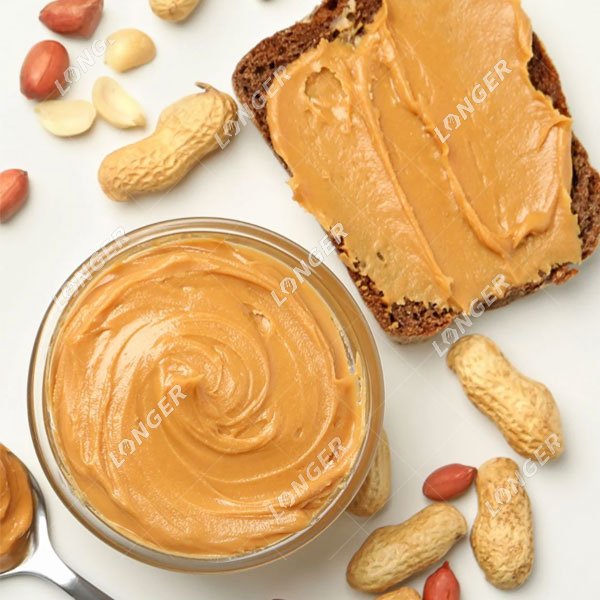Why Are Peanuts Roasted for Peanut Butter?
- Release Lime: Aug 22 2023
- Source: admin
Introduction
Peanut butter, a beloved staple in many households worldwide, owes its creamy texture and nutty flavor to a crucial step in its production process: roasting the peanuts. While peanut butter can be made from raw peanuts, the roasting process not only enhances its taste but also plays a pivotal role in ensuring its safety and shelf life. In this article, we'll delve into the reasons why peanuts are roasted for peanut butter production.

1. Flavor Enhancement

1. Flavor Enhancement
One of the primary reasons peanuts are roasted for peanut butter is to intensify their flavor. Raw peanuts have a mild, earthy taste that lacks the rich, roasted nuttiness associated with peanut butter. Roasting the peanuts at high temperatures caramelizes their natural sugars and releases aromatic compounds, resulting in the characteristic nutty and robust flavor that peanut butter enthusiasts adore.
2. Texture Improvement
2. Texture Improvement
Roasting also transforms the texture of peanuts, making them more suitable for grinding into a smooth, creamy consistency. Raw peanuts are typically harder and less pliable, which makes them challenging to process into the creamy spread we love. Roasting softens the peanuts and makes them easier to grind, resulting in a velvety-smooth texture.
3. Safety and Preservation
3. Safety and Preservation
Roasting peanuts serves a vital safety purpose by reducing the risk of contamination from pathogens like Salmonella. The high temperatures during roasting effectively kill any potential bacteria or molds present on the peanuts. This step is essential for ensuring the safety of the end product and reducing the risk of foodborne illnesses.
Additionally, roasting extends the shelf life of peanut butter. The heat applied during the roasting process helps reduce the moisture content in peanuts, inhibiting the growth of spoilage microorganisms. This preservation effect means that peanut butter can be stored for longer periods without losing its quality or developing rancid flavors.
4. Removal of Undesirable Flavors
Raw peanuts can sometimes have undesirable or bitter flavors due to the presence of certain compounds, such as tannins and enzymes. Roasting helps to neutralize these compounds, eliminating any unwanted flavors and improving the overall taste profile of the peanut butter.
5. Aromatic Compounds
Additionally, roasting extends the shelf life of peanut butter. The heat applied during the roasting process helps reduce the moisture content in peanuts, inhibiting the growth of spoilage microorganisms. This preservation effect means that peanut butter can be stored for longer periods without losing its quality or developing rancid flavors.
4. Removal of Undesirable Flavors
Raw peanuts can sometimes have undesirable or bitter flavors due to the presence of certain compounds, such as tannins and enzymes. Roasting helps to neutralize these compounds, eliminating any unwanted flavors and improving the overall taste profile of the peanut butter.
5. Aromatic Compounds
Roasting not only enhances the flavor but also generates a delightful aroma that is characteristic of roasted peanuts. This appealing scent can stimulate the appetite and enhance the overall sensory experience of consuming peanut butter.
Conclusion
Roasting is an essential step in the production of peanut butter, playing a crucial role in enhancing flavor, improving texture, ensuring safety, and preserving the product. The transformation of raw, mild peanuts into the rich, creamy, and flavorful spread we know and love is made possible through the magic of roasting. (Of course, a peanut butter production line is required to complete the process.)
So, the next time you enjoy a spoonful of peanut butter on your toast or in your sandwich, remember that it all begins with the careful roasting of those humble peanuts.
If you want to know more information about peanut butter production equipment, welcome to contact us.
Conclusion
Roasting is an essential step in the production of peanut butter, playing a crucial role in enhancing flavor, improving texture, ensuring safety, and preserving the product. The transformation of raw, mild peanuts into the rich, creamy, and flavorful spread we know and love is made possible through the magic of roasting. (Of course, a peanut butter production line is required to complete the process.)
So, the next time you enjoy a spoonful of peanut butter on your toast or in your sandwich, remember that it all begins with the careful roasting of those humble peanuts.
If you want to know more information about peanut butter production equipment, welcome to contact us.
Email: serena@machinehall.com
WhatsApp/Mobile: +8615515597212

 0086-15515597212
0086-15515597212 serena@machinehall.com
serena@machinehall.com



 Your Location:
Your Location: